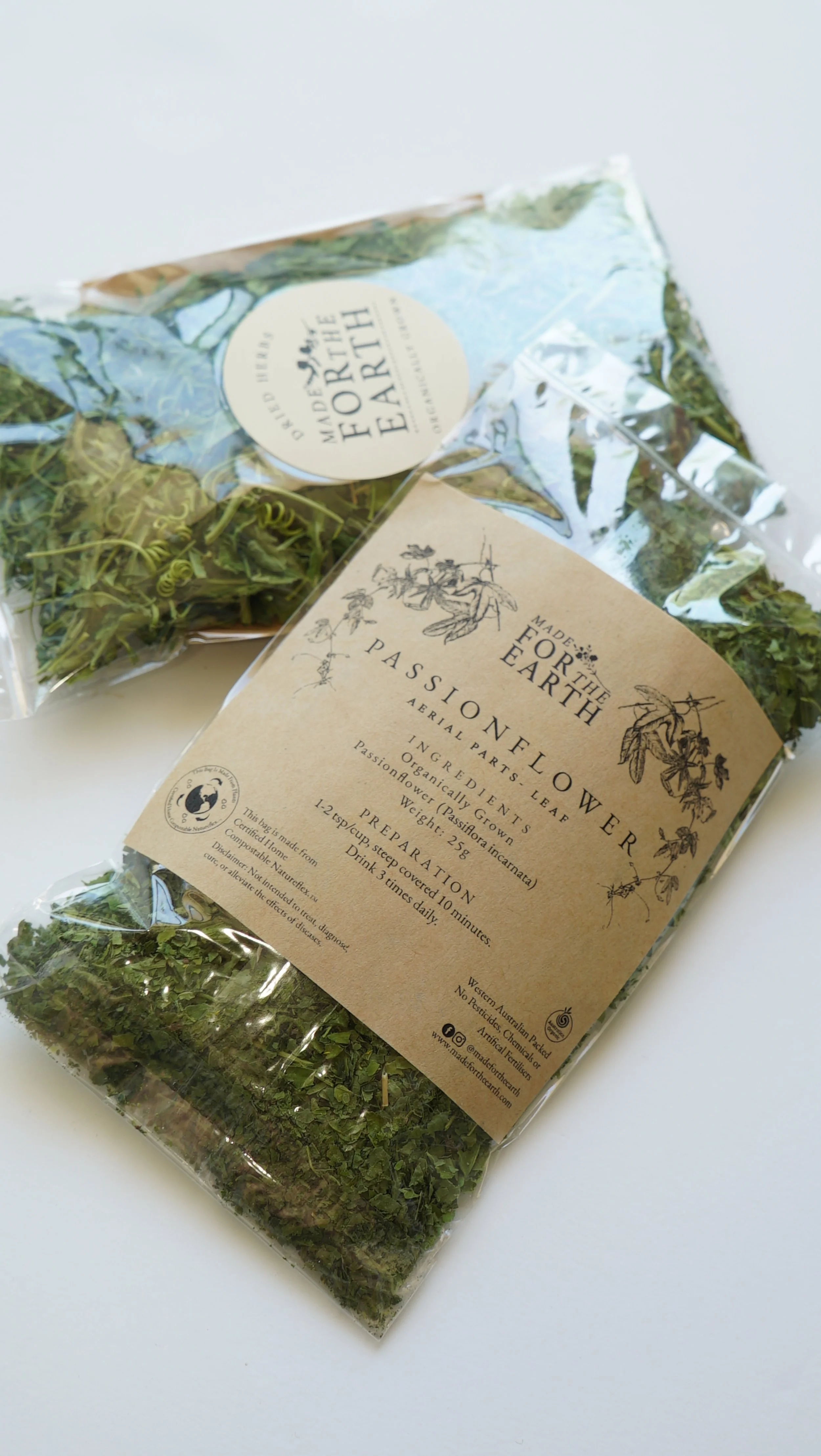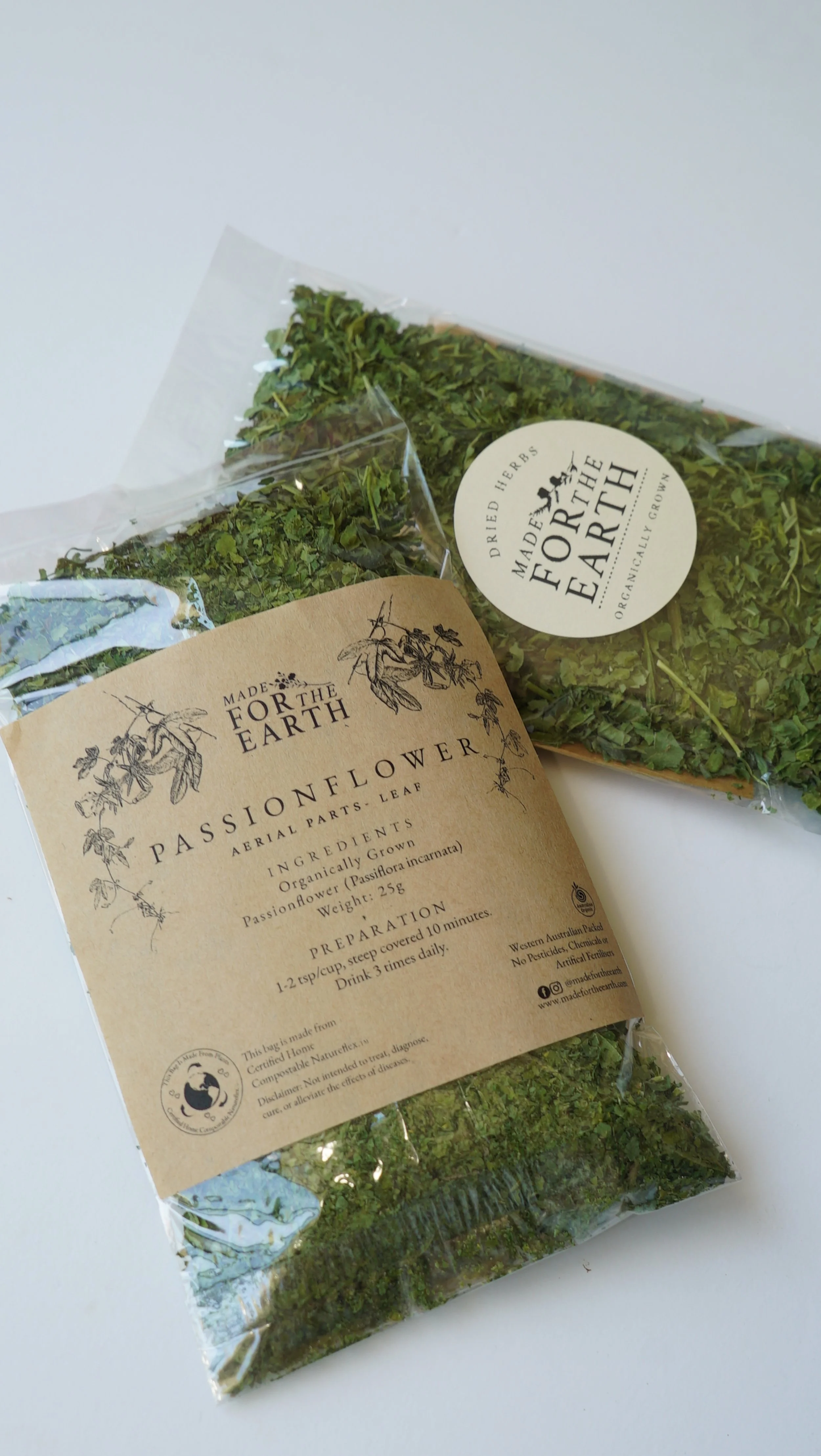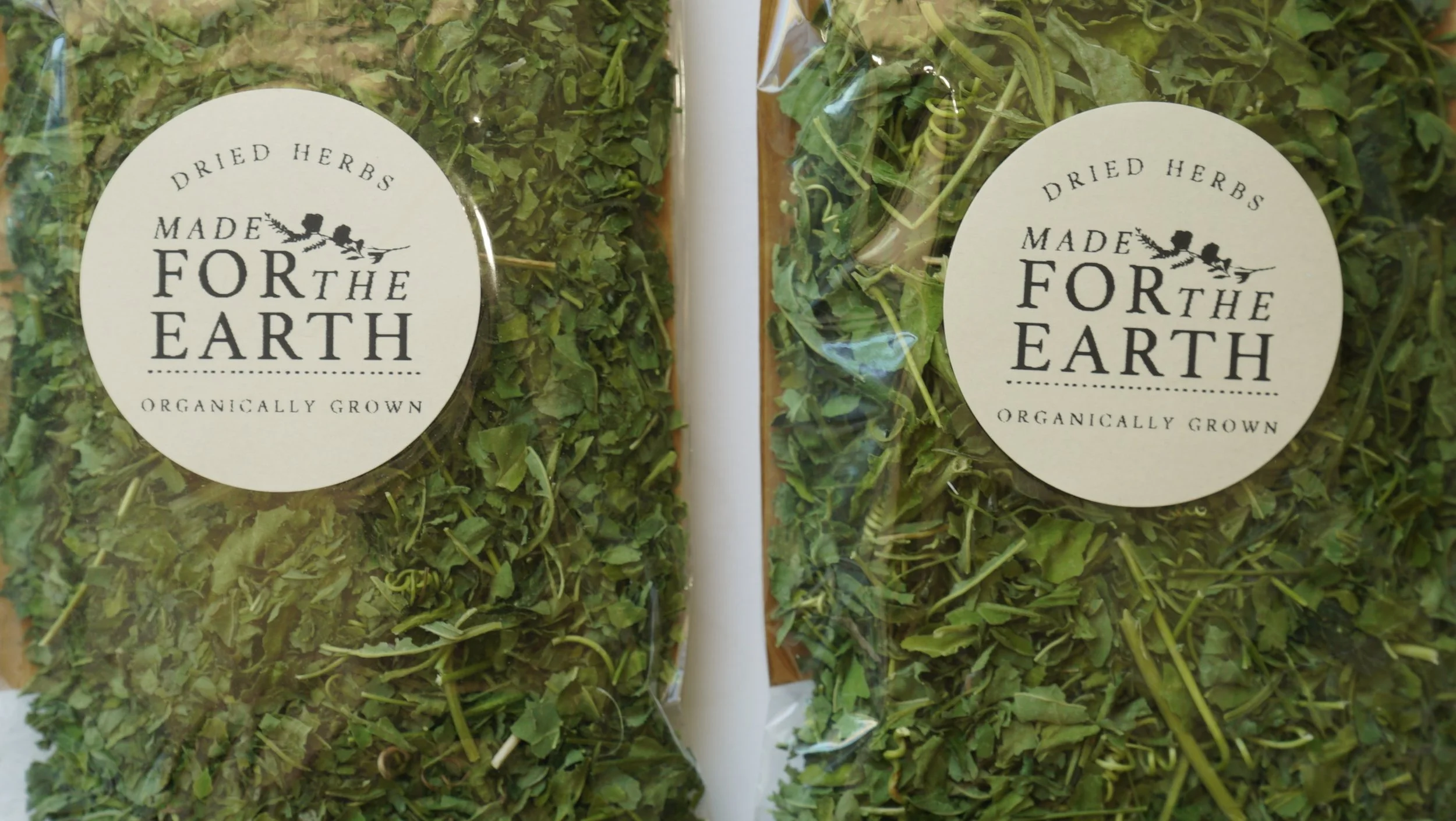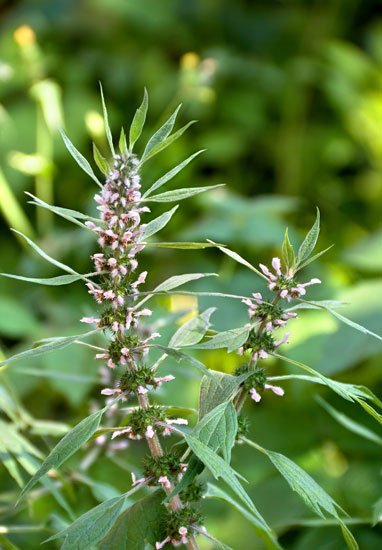 Image 1 of 3
Image 1 of 3

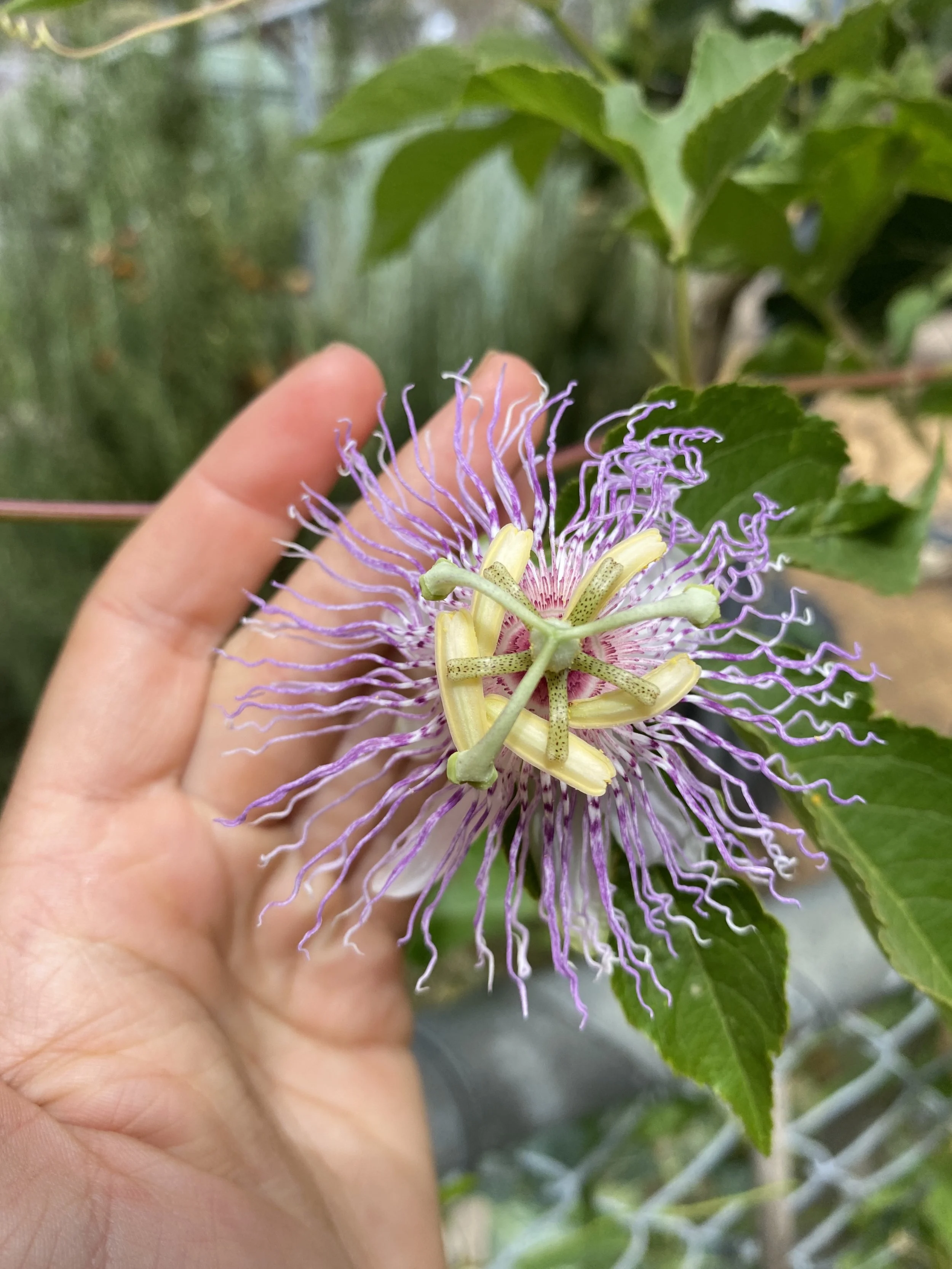 Image 2 of 3
Image 2 of 3

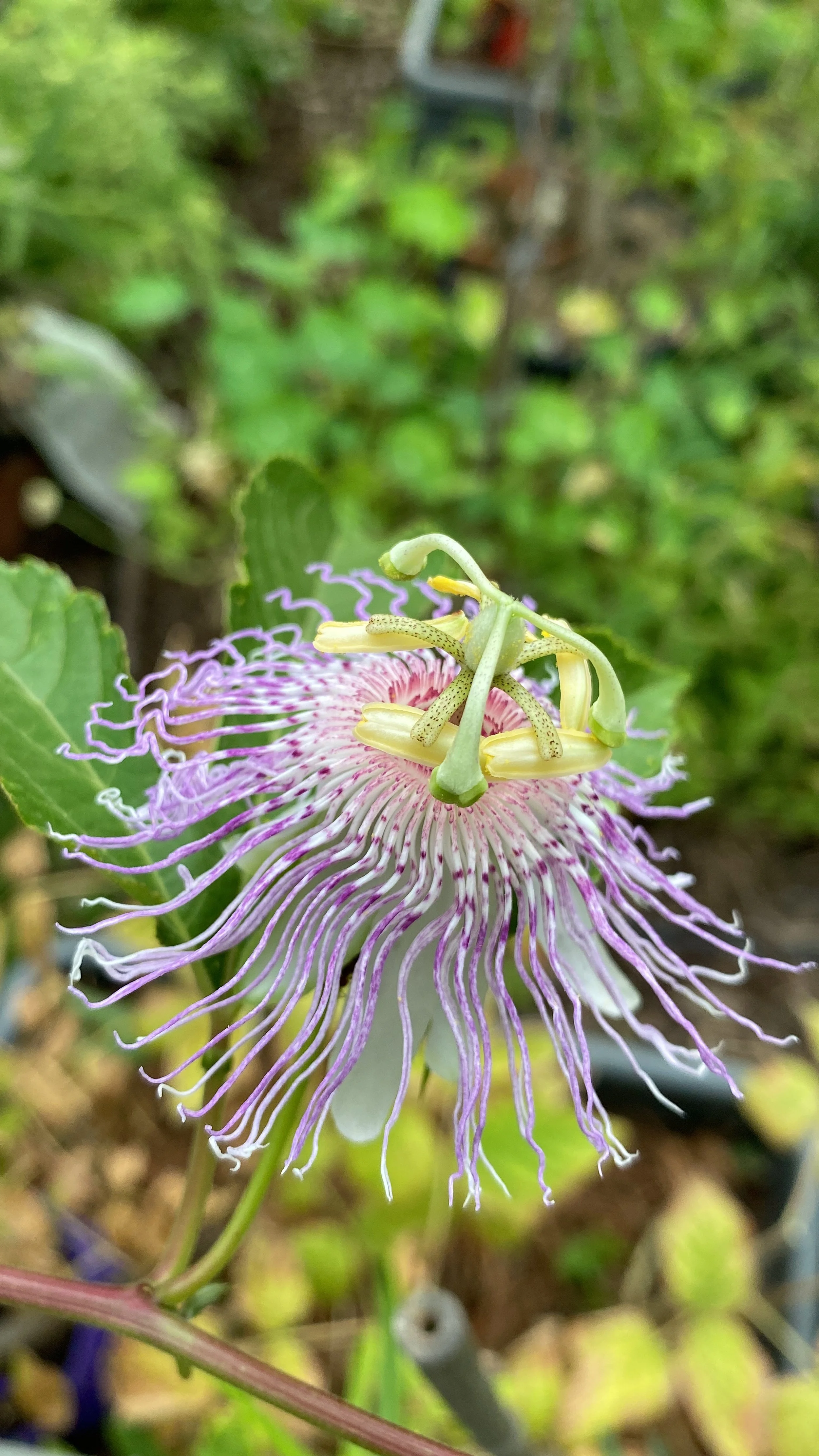 Image 3 of 3
Image 3 of 3




Passionflower Plant
Passiflora incarnata
Plant Availability: Late Spring - Early Summer
Pot Size: 1L
Benefits
Passionflower is a calming nervine traditionally used to support restful sleep, reduce anxiety, and ease nervous tension. Its striking purple flowers also attract bees and beneficial insects, making it both a healing and ornamental addition to the garden.
Growing Conditions
Season: Spring to Early Autumn
Soil: Well-drained, loamy or sandy soils
Watering: Regular watering while establishing, drought-tolerant once mature
Position: Full Sun to Part Shade – thrives in warm, sheltered spots
Fertilising: Light feeding in spring with compost or organic liquid fertiliser
Use
Leaves and flowers are harvested and dried to make herbal teas, tinctures, or infusions. Best harvested just before full bloom for highest potency.
Growing Tips
Passiflora incarnata is a hardy, suckering perennial vine that spreads underground. Train along a trellis, fence, or arbour. Prune regularly to shape and prevent overcrowding. Cold hardy and dies back in winter, returning vigorously in spring.
Companion Plants
Pairs well with lemon balm, valerian, and skullcap for a calming herb garden. Also works beautifully alongside other climbers and pollinator-friendly plants.
Passiflora incarnata
Plant Availability: Late Spring - Early Summer
Pot Size: 1L
Benefits
Passionflower is a calming nervine traditionally used to support restful sleep, reduce anxiety, and ease nervous tension. Its striking purple flowers also attract bees and beneficial insects, making it both a healing and ornamental addition to the garden.
Growing Conditions
Season: Spring to Early Autumn
Soil: Well-drained, loamy or sandy soils
Watering: Regular watering while establishing, drought-tolerant once mature
Position: Full Sun to Part Shade – thrives in warm, sheltered spots
Fertilising: Light feeding in spring with compost or organic liquid fertiliser
Use
Leaves and flowers are harvested and dried to make herbal teas, tinctures, or infusions. Best harvested just before full bloom for highest potency.
Growing Tips
Passiflora incarnata is a hardy, suckering perennial vine that spreads underground. Train along a trellis, fence, or arbour. Prune regularly to shape and prevent overcrowding. Cold hardy and dies back in winter, returning vigorously in spring.
Companion Plants
Pairs well with lemon balm, valerian, and skullcap for a calming herb garden. Also works beautifully alongside other climbers and pollinator-friendly plants.


